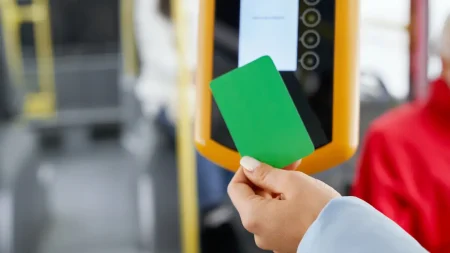In a big move to protect consumers, the South African Revenue Service (SARS) has urged everyone to check their shopping slips carefully. Why? Because the VAT (Value Added Tax) rate must stay at 15%, and not increase, even though there were earlier plans to raise it.
This comes after the National Treasury changed its mind about the 0.5% VAT increase that was supposed to start on 1 May 2025. Now, SARS is making sure all South Africans know about the situation – and how to protect themselves from being overcharged.
What Happened With the Value Added Tax Increase?
Earlier this year, the government said it would raise VAT from 15% to 15.5% starting 1 May 2025. The idea was to collect more money to help with the country’s financial challenges. However, the announcement caused a lot of concern, especially from groups who said that even a small increase would make basic goods more expensive for struggling families.
The Democratic Alliance (DA) and other organisations took the matter to court. They argued that the VAT increase would unfairly hurt the poor, many of whom are already battling high food prices and unemployment.
The court agreed, and the Treasury decided to suspend the VAT hike. Finance Minister Enoch Godongwana officially withdrew the plan. That means the VAT stays at 15% – no change!
Related: The Uncertainty of SASSA Grants and the VAT Freeze in 2025
SARS’ Warning: Double Check That VAT Rate!
Even though the government scrapped the increase, there was a concern: some shops, restaurants, and service providers had already updated their systems to charge 15.5%.
To prevent consumers from paying more than they should, SARS Commissioner Edward Kieswetter made it very clear:
“All consumers are urged to ensure they are charged the correct VAT rate of 15%. In the unlikely event they are charged 15.5%, consumers should bring this to the attention of the vendor and ensure that this is resolved at the point of sale.”
This means every South African must keep an eye on their receipts. If you see VAT listed at 15.5%, speak up immediately. Vendors must fix the mistake either by refunding the difference or by agreeing on another solution right there at the till.
What Should Vendors (Shops, Businesses) Do?
Commissioner Kieswetter didn’t just talk to consumers. He also gave a firm message to businesses:
All vendors must readjust their systems to go back to the 15% VAT rate.
If they can’t do it immediately (because of complicated IT systems), they are allowed to continue using 15.5% temporarily – but only until 15 May 2025.
After that date, no excuses! Every business must charge exactly 15%.
Businesses who ignore this risk fines or other penalties from SARS.
Kieswetter also said:
“Vendors who have already implemented both the rate changes and the Zero-Rating are encouraged to reverse those changes before May 1.”
In other words, businesses must act fast to avoid trouble.
Why Does This Matter So Much?
You might be wondering: is a 0.5% increase really that big a deal? Actually, yes.
For most South Africans living in LSM 1–7 areas (low to middle income groups), even a few extra cents on essential items like bread, maize meal, electricity, and transport can hurt.
For example:
A monthly grocery bill of R2,000 would increase by around R10 with the 0.5% hike.
Over a year, that’s an extra R120 – enough to buy a few extra loaves of bread or bus tickets.
For big businesses, the 0.5% hike could mean millions of rands extra collected from customers – money that should stay in YOUR pocket!
How Can You Protect Yourself?
Here’s what you can do to stay safe:
Always Check Your Receipts: After you shop, look for the VAT amount. It should say 15%.
Know Your Rights: If you’re charged 15.5%, you can ask for an immediate refund or correction.
Report Problems: If a business refuses to fix the mistake, you can report them to SARS or the Consumer Protection authorities.
Spread the Word: Tell your family, friends, and community groups to check their slips too.
Stay Updated: Follow official SARS announcements or trusted news sources.
Special Note for Spaza Shops and Informal Traders
Many people buy from spaza shops, street vendors, and informal traders. Some of these sellers might not issue formal receipts or show VAT breakdowns.
If a shop charges you more than expected, ask them politely if they are charging VAT, and at what rate.
Remember: only registered VAT vendors are allowed to charge VAT. If they’re not registered, they shouldn’t be adding any VAT at all.
What Happens If a Business Doesn’t Fix the VAT Rate?
If businesses don’t adjust their systems by 15 May 2025, SARS can:
Fine them
Charge them penalties
Possibly even suspend their VAT license
This could be very damaging for small businesses, so SARS is encouraging everyone to comply quickly.
Final Words: It’s Up to All of Us
This VAT issue shows how important it is for everyday South Africans to stay alert. It’s not just about big government decisions — it affects our daily bread.
Whether you’re shopping for groceries, filling up with petrol, or paying your kids’ school fees, every rand counts.
So next time you shop, remember:
“Check your slip! VAT must stay at 15%!”










